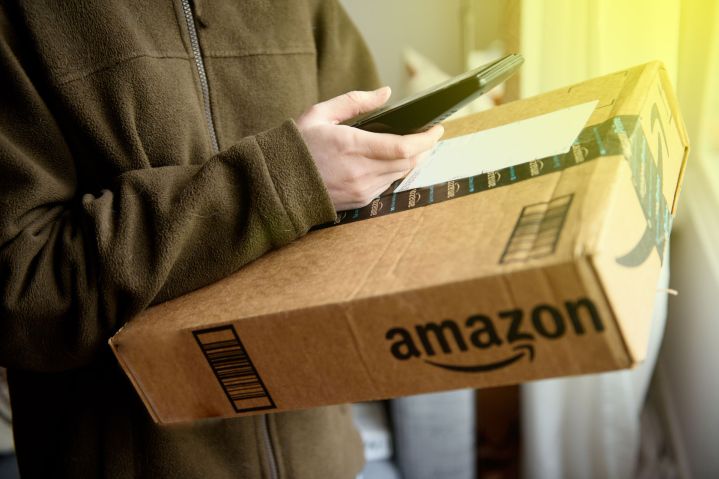
The service, which launches in just a few days, gives Amazon delivery personnel access to your home so they don’t have to leave your package exposed on the doorstep if you’re not in when they call.
Amazon Prime members can use the service for free, though first you’ll have to fork out $250 for the Amazon Key In-Home Kit. This has the necessary smart lock and security camera that allows the in-home delivery to actually happen, with the customer able to control precisely who enters their home while the camera records the visit should there be any issues about the delivery.
Curious to learn more about how the idea of allowing delivery personnel into their homes sits with Americans, polling company Morning Consult asked them a few questions about it.
Well, seems like the majority of American citizens aren’t quite ready to have strangers stepping into their houses when they’re not around. Indeed, 68 percent of the 2,201 adults polled nationwide said they’re not comfortable with the idea, with 53 percent claiming to feel “very uncomfortable” about it.
Not surprisingly, younger folks — who’re generally accepted to be more receptive to new technology and services — were more into the idea of a delivery driver entering their home to drop off a package, though even then only 33 percent of those aged between 18 and 29 said they were cool with it. At the other end, just 14 percent of those aged 65 and older said they felt OK about the idea.

Looking at the survey’s results, Brad Russell, research director at the market research and consulting company Parks Associates, told Morning Consult, “Obviously, this is crossing a new line.” He added that while keyless entry to homes has been around for years and embraced by a good many homeowners, “that’s not to say there aren’t real concerns” among the general public, Russell said.
In a piece examining the idea of Amazon Key, DT’s Kim Wetzel said that while it certainly offered an effective solution for scuppering the loathsome antics of porch pirates, she still had concerns about the possibility of a rogue delivery driver doing something they shouldn’t while inside her property. “No matter how much I desire to have my stuff delivered safely, I value the sanctuary of my home more,” Wetzel wrote.
It’s certainly going to be fascinating to see how many online shoppers end up trying Amazon Key, and, more importantly, whether they stick with it.
Walmart is also conducting trials of a similar system, partnering with smart home specialist August. Walmart’s idea, however, goes one step further, and involves the delivery driver actually placing your ordered items right inside your refrigerator or pantry.
Editors' Recommendations
- Why can’t Alexa reach Amazon Music?
- Is your Amazon Echo, Alexa, or Ring down today? You aren’t alone
- 7 things you didn’t know your Amazon Alexa smart display could do
- Amazon Key In-Garage Delivery Service expands to 4,000-plus cities
- Amazon’s Choice products aren’t always what they claim to be


